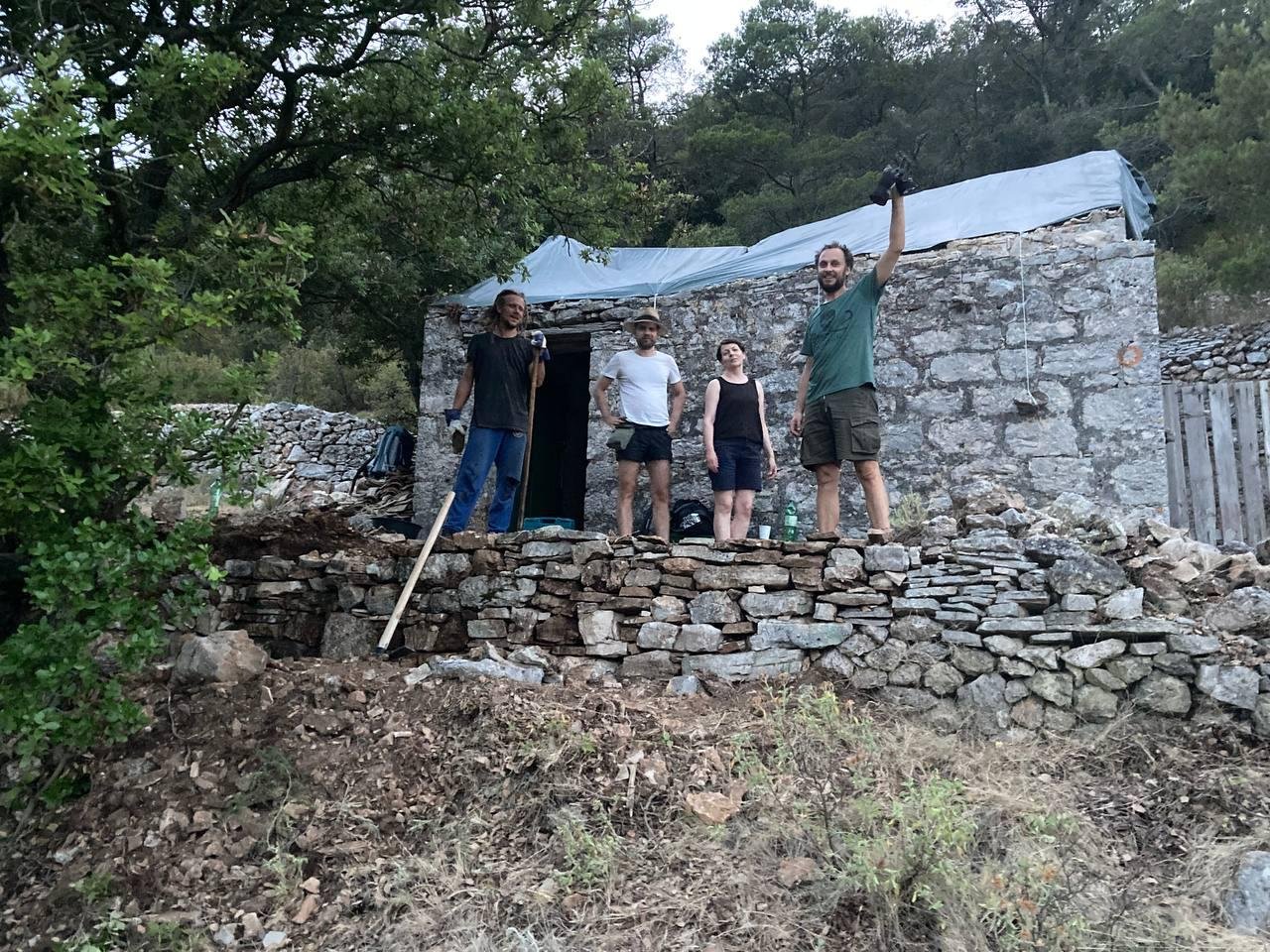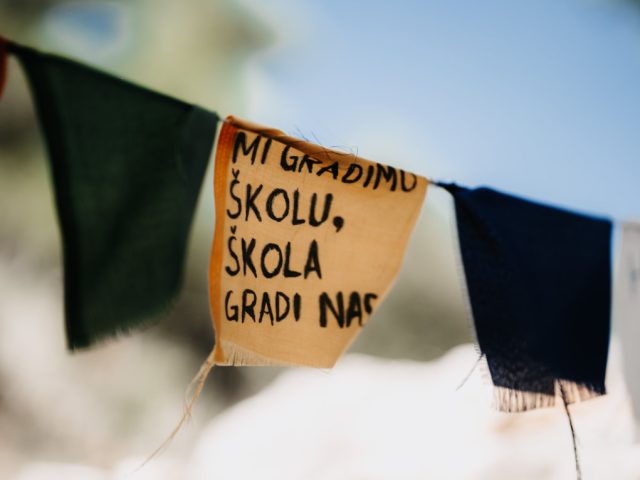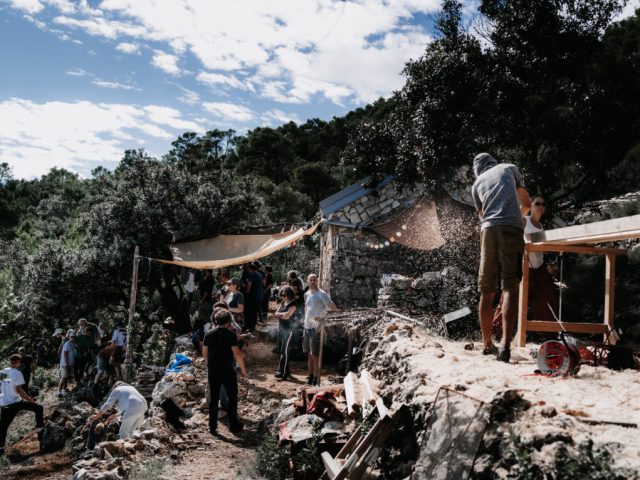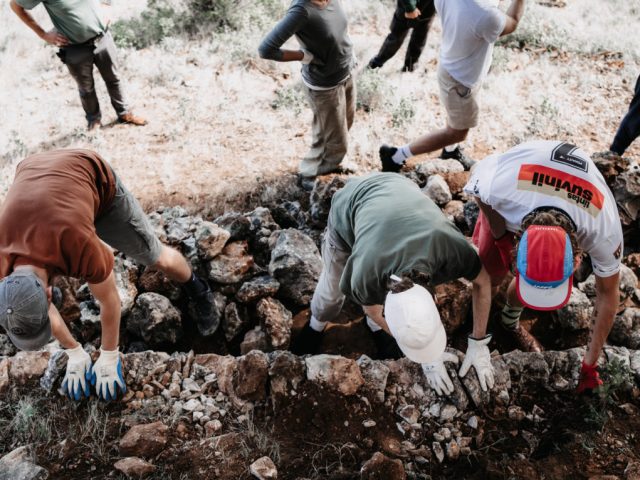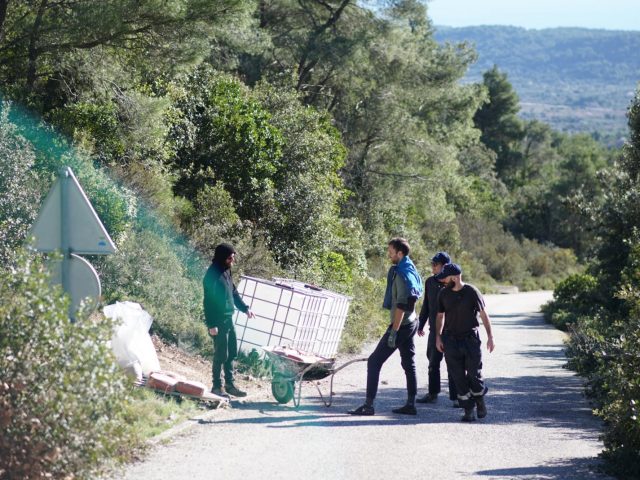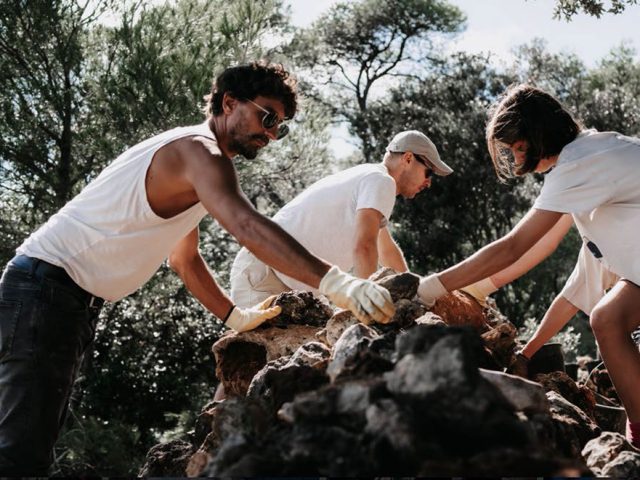Like in a fairy tale, for many centuries many people before us made many beautiful and long-lasting dry stone walls, or dry-stack walls, all along the Mediterranean coastline. But it is only recently that it has been recognized and admired.

In 2018, the traditional art of dry stone walling, this particular vernacular architecture found throughout the island of Vis, was included on UNESCO’s List of Intangible Cultural Heritage of Humanity.
The art of dry stone walling will be at the core of our School, not only because we want to preserve the old stone walls built centuries ago – we also want to learn from the simplicity, sustainability and functionality of this vernacular architecture.

We are obviously not yet even at the beginners stage, but we are patient and eager to learn, preserve and experiment. So we invited Marnel, who lives on Vis, and has been learning himself for at least a decade, and generously sharing his knowledge of dry stone walling, medicinal art and permaculture.

Our plan was to expand the deck in front of the stone house and build and reconstruct an old dry stone wall that would both help us prevent erosion and give us plenty of new and needed space in front of the house. After about six hours of work, we succeeded in building parts of the suhozid. We still have many hours and learning ahead of us.

Last but not least, Tamara just arrived from Norway and has taken the first measurements of the house. Who knows what’s in store for us?

P.S. If you want to find out more, you will be able to follow our progress step by step here (also with some tips & tricks) and, in the meantime:
We learn thanks to others who have already made the steps and are ready to transmit knowledge, one of them is Marnel who was a precious teacher at this work action. Check out his amazing Vis Forest Garden.
You can also check out the incredible work by the organisation Dragodid from the island of Vis, who thoroughly studied and practices the art of dry stone walling, and the organisation Pomalo in Komiža.
